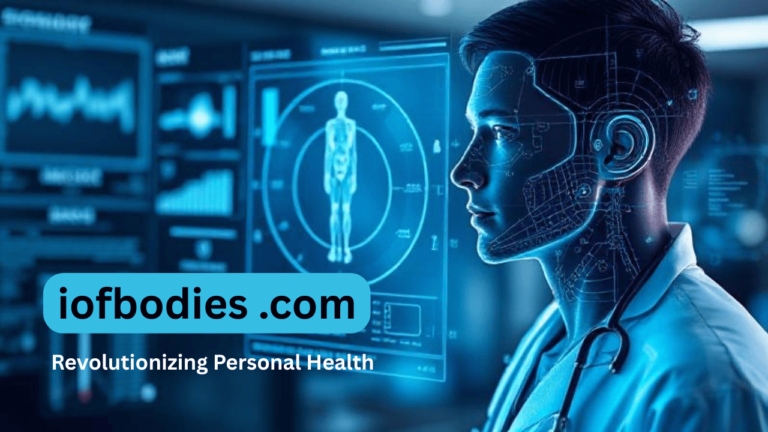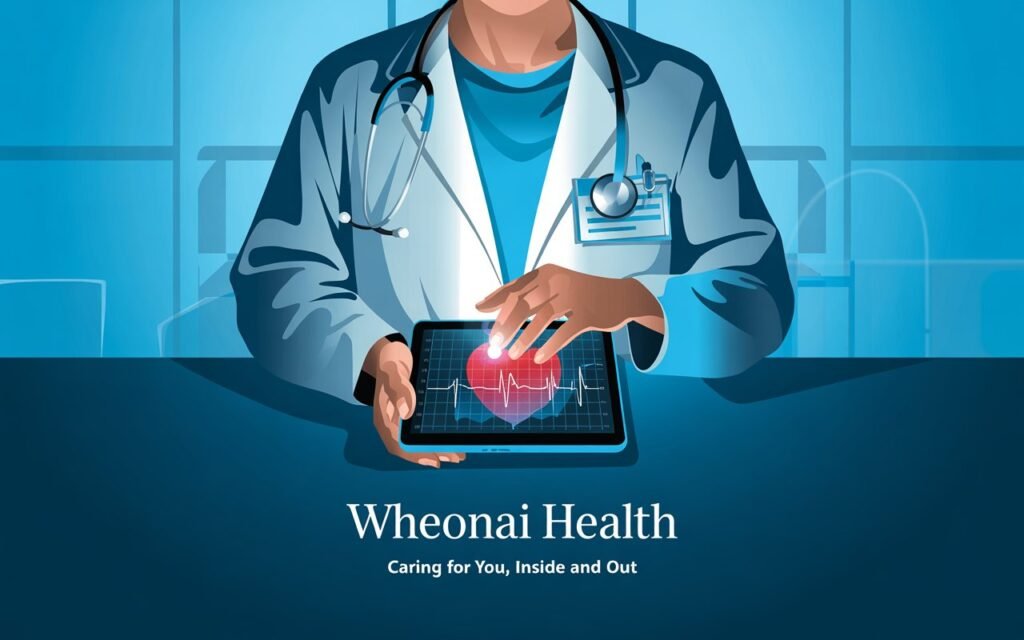The rapid growth of artificial intelligence (AI) and wearable technology is transforming the way we monitor, maintain, and enhance our personal health. One platform that has gained attention for documenting this shift is iofbodies .com. The website focuses on the intersection of human biology, AI, and connected devices—collectively referred to as the Internet of Bodies (IoB). As digital devices become more integrated into our lives and even our bodies, platforms like iofbodies .com provide critical insights into their potential, benefits, and concerns.
With health wearables and AI-driven solutions now part of daily routines for millions, understanding how they work together is essential. iofbodies .com sheds light on these developments, exploring both opportunities and ethical challenges in this evolving field.
The Internet of Bodies: What It Means for You and Your Health
The Internet of Bodies (IoB) refers to a network of smart devices worn, implanted, or ingested that collect and transmit health data. These devices range from fitness trackers and smartwatches to advanced neural implants and AI-assisted diagnostic tools. At the heart of this innovation is the drive to improve healthcare through real-time monitoring, predictive analytics, and personalized treatment.
On iofbodies .com, various use cases are highlighted, including wearable ECG monitors that detect heart irregularities, smart insulin pens that optimize diabetes management, and brain-computer interfaces that assist patients with disabilities. These examples represent just the surface of what IoB can offer.
AI plays a key role in the IoB ecosystem by interpreting massive volumes of health data generated by wearables and sensors. Machine learning models help identify early signs of diseases, track treatment effectiveness, and even predict future health risks. For instance, some devices can now alert users to potential heart attacks or strokes before symptoms appear.
Also Read
However, with this innovation comes responsibility. iofbodies .com explores not only the technical achievements but also the privacy and ethical concerns surrounding constant health data collection. The questions of data ownership, user consent, and medical data security are crucial topics that IoB developers and policymakers must address.
IoB also brings about democratization in healthcare. Patients can track their health without frequent visits to clinics, reducing costs and increasing convenience. Elderly individuals and those with chronic illnesses benefit significantly from real-time monitoring and remote consultations supported by AI.
To better understand the growth and future potential of this industry, consider the following market insights:
Global Wearable Health Devices Market (2021–2028)
| Year | Market Size (USD Billion) |
|---|---|
| 2021 | 18.4 |
| 2022 | 22.9 |
| 2023 | 28.3 |
| 2024 | 34.7 (estimated) |
| 2025 | 42.1 (projected) |
| 2028 | 70.2 (projected) |
As illustrated above, the wearable health tech industry is expected to nearly quadruple in less than a decade.
AI in Wearable Devices: Key Applications and Real-World Impact
Artificial intelligence is the driving force behind the efficiency and intelligence of modern wearable health devices. It transforms raw data into actionable health insights, often without user intervention. iofbodies .com reports that AI algorithms now play critical roles in various applications—from diagnostics to post-surgery recovery.
Key Applications of AI in Wearables:
- Real-Time Health Monitoring: Devices like Fitbit and Apple Watch collect vital signs and send alerts when abnormalities are detected.
- Predictive Health Analytics: AI models identify early warning signs for chronic conditions like diabetes or heart disease.
- Fitness and Activity Guidance: AI recommends personalized workout plans based on user health metrics and goals.
- Mental Health Support: Smart rings and wristbands can track stress levels and sleep patterns, suggesting coping strategies.
- Post-Treatment Care: Patients recovering from surgery receive tailored recovery plans via smart apps integrated with AI.
One fascinating example highlighted by iofbodies .com involves wearable EEG headbands. These devices help individuals with epilepsy by detecting brainwave patterns and predicting seizures. AI processes data in real time and can notify caregivers through connected apps, improving safety and response time.
Comparison of Popular Health Wearables Using AI
| Device | Main Features | AI Capabilities |
|---|---|---|
| Apple Watch | Heart rate, ECG, blood oxygen, fitness | Fall detection, arrhythmia prediction |
| Fitbit Sense | Stress tracking, sleep stages, activity | Personalized health coaching |
| WHOOP Strap | Recovery score, strain tracking | AI-driven performance optimization |
| Oura Ring | Sleep tracking, temperature, heart rate | Predictive readiness insights |
These tools not only collect data but also guide users to make better health decisions with minimal effort.
From a broader perspective, AI-powered wearables are also being used in clinical trials and public health research. They enable the collection of large-scale data across populations, leading to better epidemiological insights and faster development of treatments.
While benefits are clear, concerns still persist. Devices can sometimes misread data or offer generalized advice not suitable for all individuals. iofbodies .com stresses the importance of combining human oversight with AI recommendations to ensure accuracy and relevance.
Challenges and Ethical Concerns in the IoB Ecosystem
Despite the breakthroughs, there are notable challenges associated with the IoB ecosystem. The biggest concern is data privacy. When wearables transmit health information to the cloud, there’s always a risk of breach or misuse.
iofbodies .com emphasizes several ethical questions:
- Who owns your health data—the user, the device company, or a third-party service?
- How secure are the cloud systems storing sensitive biometrics?
- What measures are in place to prevent unauthorized access?
Additionally, there’s the question of consent. Many users may not be aware of the extent to which their data is used for purposes beyond personal health tracking, such as targeted advertising or medical research without their knowledge.
Bias in AI models is another issue. If the data used to train these systems lacks diversity, recommendations may be inaccurate or harmful for underrepresented groups. AI-based diagnosis tools may not perform equally well across genders, ethnicities, or age groups.
Healthcare regulators are working to address these issues, but the technology often evolves faster than policies can keep up. iofbodies .com advocates for transparency, regulation, and public education to ensure responsible use of IoB technologies.
FAQs About iofbodies .com and the Internet of Bodies
1. What is iofbodies .com all about?
iofbodies .com is a platform that explores the latest technologies and research around the Internet of Bodies (IoB), focusing on AI, health wearables, and ethical challenges.
2. Is the data collected by wearables secure?
Data security depends on the manufacturer and their encryption standards. However, users should always review privacy policies and manage permissions actively.
3. How does AI help with chronic disease management?
AI detects patterns in real-time data that may signal flare-ups or dangerous trends, helping doctors and patients respond early.
4. Are AI-based wearables suitable for everyone?
While they benefit many users, some devices may not offer accurate readings for certain populations due to model training biases or sensor limitations.
Conclusion: The Role of iofbodies .com in the Future of Personal Health
As wearable devices and AI continue to evolve, their role in healthcare will only grow stronger. Platforms like iofbodies .com serve as valuable resources for understanding how these tools affect daily life and long-term health. They provide updates on innovation, spotlight ethical issues, and encourage informed adoption of technology.
Whether you’re a tech enthusiast, a patient managing a chronic condition, or a healthcare provider, keeping an eye on developments via iofbodies .com can help you stay ahead in the health tech revolution. The future of health is smart, connected, and increasingly powered by data—and understanding that journey is the first step toward making the most of it.
Whether you’re a tech enthusiast or healthcare provider, staying informed through platforms like iofbodies .com and tools such as wheonai health helps you navigate the smart health revolution more confidently.




